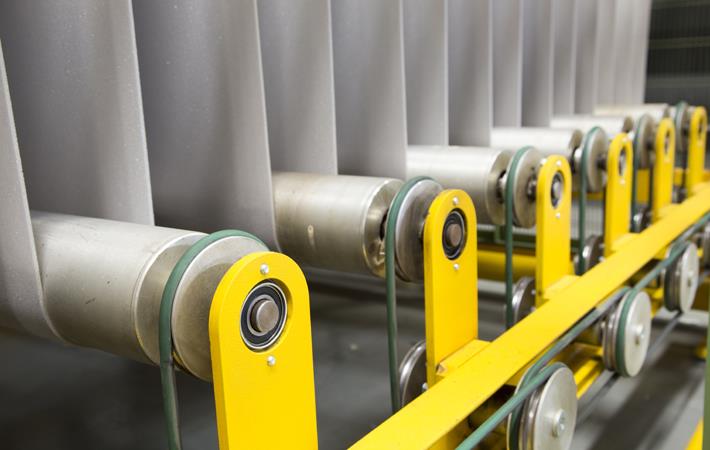Interviews
India has standards for 348 technical textile products
28 Dec '19
3 min read

Pic: Shutterstock
Two hundred and seven technical textiles items have been brought under a separate head in the Harmonised System of Nomenclature (HSN) code and the Bureau of Indian Standards (BIS) has developed standards for 348 technical textile products, according to the Indian textiles ministry. Export of technical textiles saw a rise of 11 per cent in April-June quarter of 2019.
To derive the benefits of technical textiles in various fields, 92 application areas have been identified for mandatory use across 10 central ministries and departments, the ministry said in a yearend review.
The work of conducting fresh baseline survey on technical textiles sector has been given to the Indian Institute of Technology Delhi. The domestic technical textiles market size is projected to cross ₹2 lakh crores by 2020-21.
At the Partners Conference in Geneva, India announced it will launch the second phase of the Cotton Technical Assistance Programme (TAP) for Africa. In the five year long second phase, the programme will be scaled up in size and coverage and will be introduced in five additional countries—Mali, Ghana, Togo, Zambia and Tanzania. The Cotton TAP programme will now cover 11 African countries including the C4 (Benin, Burkina Faso, Chad and Mali).
The government sanctioned two textile parks in Jammu and Kashmir under the Scheme for Integrated Textile Park (SITP). BIS published in August this year an Indian standard for identification, marking and labelling of Pashmina products to certify its purity. The certification will help curb the adulteration of Pashmina and also protect the interests of local artisans and nomads of Ladakh who are the producers of Pashmina raw material.
The usage of agro textiles in the North East region has led to average increase in farmers’ income by 67-75 per cent, the ministry said. Use of geotextiles in infrastructure projects has led to improvement of serviceability of the infrastructure and increased maintenance intervals for infrastructure like roads and hill slopes in the region.
Two new National Institute of Fashion Technology (NIFT) campuses will be set up at Panchkula (Haryana) and Ranchi (Jharkhand). At present, NIFT has 16 campuses. NIFT will also introduce four new undergraduate courses in a few campuses.
Fifty nine textile parks have been sanctioned under SITP by the ministry out of which 22 have been completed and the rest are under various stages of construction.
The total raw silk production increased by 11 per cent (35,468 MT) during 2018-19 over the previous fiscal (31,906 MT). The bivoltine raw silk production achieved a record production of 6,987 MT during 2018-19 by registering a 18.95 per cent growth over the previous fiscal. Raw silk yield per hectare increased to 105 kg during 2018-19 compared to 96 kg during 2014-15. Raw silk production in the North East region increased from 4,602 MT in 2013-14 to 7,482 MT in 2018-19, with a rise from 17 per cent to 22 per cent of India’s total production.
To derive the benefits of technical textiles in various fields, 92 application areas have been identified for mandatory use across 10 central ministries and departments, the ministry said in a yearend review.
The work of conducting fresh baseline survey on technical textiles sector has been given to the Indian Institute of Technology Delhi. The domestic technical textiles market size is projected to cross ₹2 lakh crores by 2020-21.
At the Partners Conference in Geneva, India announced it will launch the second phase of the Cotton Technical Assistance Programme (TAP) for Africa. In the five year long second phase, the programme will be scaled up in size and coverage and will be introduced in five additional countries—Mali, Ghana, Togo, Zambia and Tanzania. The Cotton TAP programme will now cover 11 African countries including the C4 (Benin, Burkina Faso, Chad and Mali).
The government sanctioned two textile parks in Jammu and Kashmir under the Scheme for Integrated Textile Park (SITP). BIS published in August this year an Indian standard for identification, marking and labelling of Pashmina products to certify its purity. The certification will help curb the adulteration of Pashmina and also protect the interests of local artisans and nomads of Ladakh who are the producers of Pashmina raw material.
The usage of agro textiles in the North East region has led to average increase in farmers’ income by 67-75 per cent, the ministry said. Use of geotextiles in infrastructure projects has led to improvement of serviceability of the infrastructure and increased maintenance intervals for infrastructure like roads and hill slopes in the region.
Two new National Institute of Fashion Technology (NIFT) campuses will be set up at Panchkula (Haryana) and Ranchi (Jharkhand). At present, NIFT has 16 campuses. NIFT will also introduce four new undergraduate courses in a few campuses.
Fifty nine textile parks have been sanctioned under SITP by the ministry out of which 22 have been completed and the rest are under various stages of construction.
The total raw silk production increased by 11 per cent (35,468 MT) during 2018-19 over the previous fiscal (31,906 MT). The bivoltine raw silk production achieved a record production of 6,987 MT during 2018-19 by registering a 18.95 per cent growth over the previous fiscal. Raw silk yield per hectare increased to 105 kg during 2018-19 compared to 96 kg during 2014-15. Raw silk production in the North East region increased from 4,602 MT in 2013-14 to 7,482 MT in 2018-19, with a rise from 17 per cent to 22 per cent of India’s total production.
Fibre2Fashion News Desk (DS)
Popular News
Leave your Comments
Editor’s Pick
































-Ltd..jpg?tr=w-120,h-60,c-at_max,cm-pad_resize,bg-ffffff)





.jpg?tr=w-120,h-60,c-at_max,cm-pad_resize,bg-ffffff)
.jpg?tr=w-120,h-60,c-at_max,cm-pad_resize,bg-ffffff)






